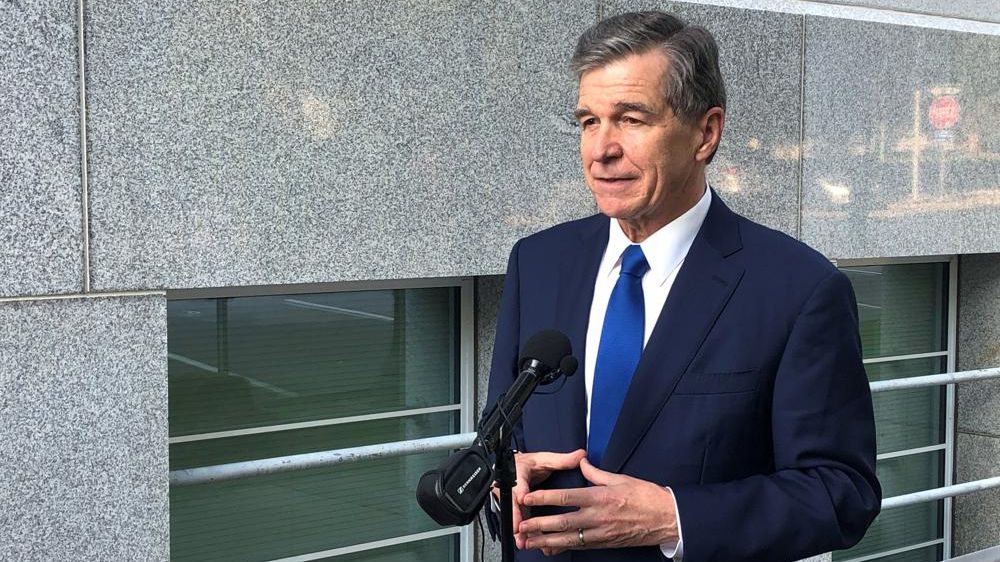RALEIGH, N.C. (AP) — A bipartisan energy bill backed by Gov. Roy Cooper that targets scaling back greenhouse gas emissions and gives Duke Energy the option to seek rate increases advanced in the North Carolina legislature on Tuesday.
The measure, unveiled late last week, cleared two Senate committees and is likely to be on the Senate floor Wednesday. A House vote is also needed. With backing from members of both parties, Duke Energy and several key business groups, the legislation should be on the Democratic governor’s desk soon.
The bill gives the North Carolina Utilities Commission until the end of next year to create a plan to reduce energy producers’ carbon dioxide output 70% from 2005 levels by 2030, and achieve zero-net CO2 emissions by 2050. They are the goals developed in Cooper’s own Clean Energy Plan, which he says is needed to counter climate change and take advantage of the declining expense of renewable energy.
“This legislation requires the state to get on a clean energy path, at the least cost,” Cooper told reporters before Tuesday’s committee meetings. “It’s a bold step and sometimes that creates uncertainty, but it’s a critical step that we have to take in North Carolina.”
An earlier version of the bill approved in July by the House but panned by Cooper and others would have told Duke Energy exactly which coal-fired power plants needed to be shuttered and suggested at times which replacement fuels were needed. The final version is much less prescriptive, keeping the decision-making with the commission. But the bill says the regulatory panel must find the “least cost path” forward and ensure reliable and adequate electricity supplies to meet the carbon dioxide reductions.
“Renewables must now compete head-to-head on a level playing field against other forms of energy generation and resources, including nuclear and natural gas,” said Sen. Paul Newton, a Cabarrus County Republican, retired Duke Energy executive and key negotiator.
The bill also lets Duke Energy seek rate increases in three-year blocks through the Utilities Commission, rather than year by year. The Charlotte-based utility says the multiyear rate idea, which it also sought unsuccessfully in 2019, can reduce legal costs and provide more predictability. Newton said the “performance-based regulation” contains many guardrails designed to protect consumers from excessive profits for the company.
The negotiated measure received public backing Tuesday from the North Carolina Chamber, N.C. Retail Merchants Association and American Petroleum Institute. Several environmental organizations still expressed reservations about the bill in news releases, saying it didn’t ensure carbon emissions reductions would be met and didn’t protect low-income customers from expected rate increases or effects of pollution.
A handful of lobbyists from various groups expressed their opposition to committee members.
“We expect to see large rate increases that will be too great for the consumers of North Carolina — both residential as well as manufacturing,” said Kevin Martin of the Carolina Utility Customers Association, a trade group for industrial and manufacturing ratepayers. “We pray that we’re wrong with that.”
Newton said there’s no estimate about how the bill would affect electric rates because it’s up to the Utilities Commission to decide — with input from customers and others — how the CO2 reduction goals will be met.



